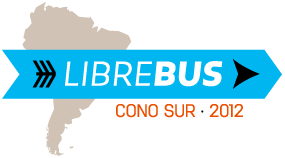
4+2 Líneas de trabajo
FREEDOM TO SHARE
The legal restrictions imposed throughout the world on intellectual properties today have a growing social impact. There is a tension between IP and human rights in the areas of access to culture and education which needs to be problematized, in particular in terms of the traditional understanding of copyright, which fails to take account of new information and communication technologies. In this context, we have to try to establish alternative models to the traditional “All Rights Reserved,” which criminalises thousands of users of cultural works.
FLOSS
The global Free Software movement develops and promotes the freedom of software, a freedom which protects many others: in a world which is increasingly dependent on computers and technology in general, the capacity for self-expression, organisation and the development of knowledge is dependent on having control of the programs which we install on our computers.
OPEN EDUCATIONAL RESOURCES
Educational resources are of ever-increasing importance to the delivery of high-quality education. The rising cost of study materials, however, is a barrier even to Stateguaranteed access to education, and in many cases traditional materials are produced without attention to the actual needs of individual educational communities. The LibreBus will bring tools, content and implementation support which can be used by anyone, following the fundamental principles of open licensing.
FREEDOM OF EXPRESSION
The massive incorporation of ICTs into civic life has permitted an expansion and enhancement of the possibilities for people to turn themselves into producers and broadcasters of information. At this moment, we exercise our freedom of expression across multiple virtual media, such as blogs and social networking sites, and we also use numerous virtual tools to coordinate and organise plans and strategies for activism. Nonetheless, we can see that our freedom of expression on the internet is constantly under threat, whether from corporate interests which want to interfere with network neutrality, or various laws which –under the pretext of cybersecurity, or crackdowns on piracy or pedophilia– seek to exercise control and record every citizen’s activities on the network. As such we must define strategies and formulate integral solutions which guarantee the democratization of digital spaces in general.
+ 2 axis
BIODIVERSITY AND ENVIROMENT
La propiedad intelectual no sólo afecta a los bienes simbólicos, sino también a las diferentes formas de vida y a la biodiversidad. Los mecanismos de propiedad intelectual han convertido los bienes comunes en commodities que pueden ser intercambiados, comprados, vendidos y destruidos como cualquier mercancía. Algunos grupos transnacionales se encuentran presionando a gobiernos y ciudadanía a través de intereses que amenazan la soberanía alimentaria y la sustentabilidad de los pueblos, e intentando privatizar los conocimientos tradicionales (biopiratería). La sociedad debe tomar conciencia de su responsabilidad en la gestión adecuada de los bienes comunes y problematizar todas aquellas políticas que ponen en riesgo la conservación y sustentabilidad del planeta.
GENDER
The gender gap is a problem that affects all fields of human activity; specifically in the
technology field this gap reachs the proportion of 1:10 (women-men). Despite that, every
day, technological advances arrives more to the general population, differences between
men and women in access to ICT and the use of these tools are still noticeable. The real
challenge in the digital world also involves to make visible this inequality, to seek
solutions designed to get women to contribute their own looks, interests and aspirations
through technology, engaging in it from a creative position as producers of knowledge
and intellectual goods.



















